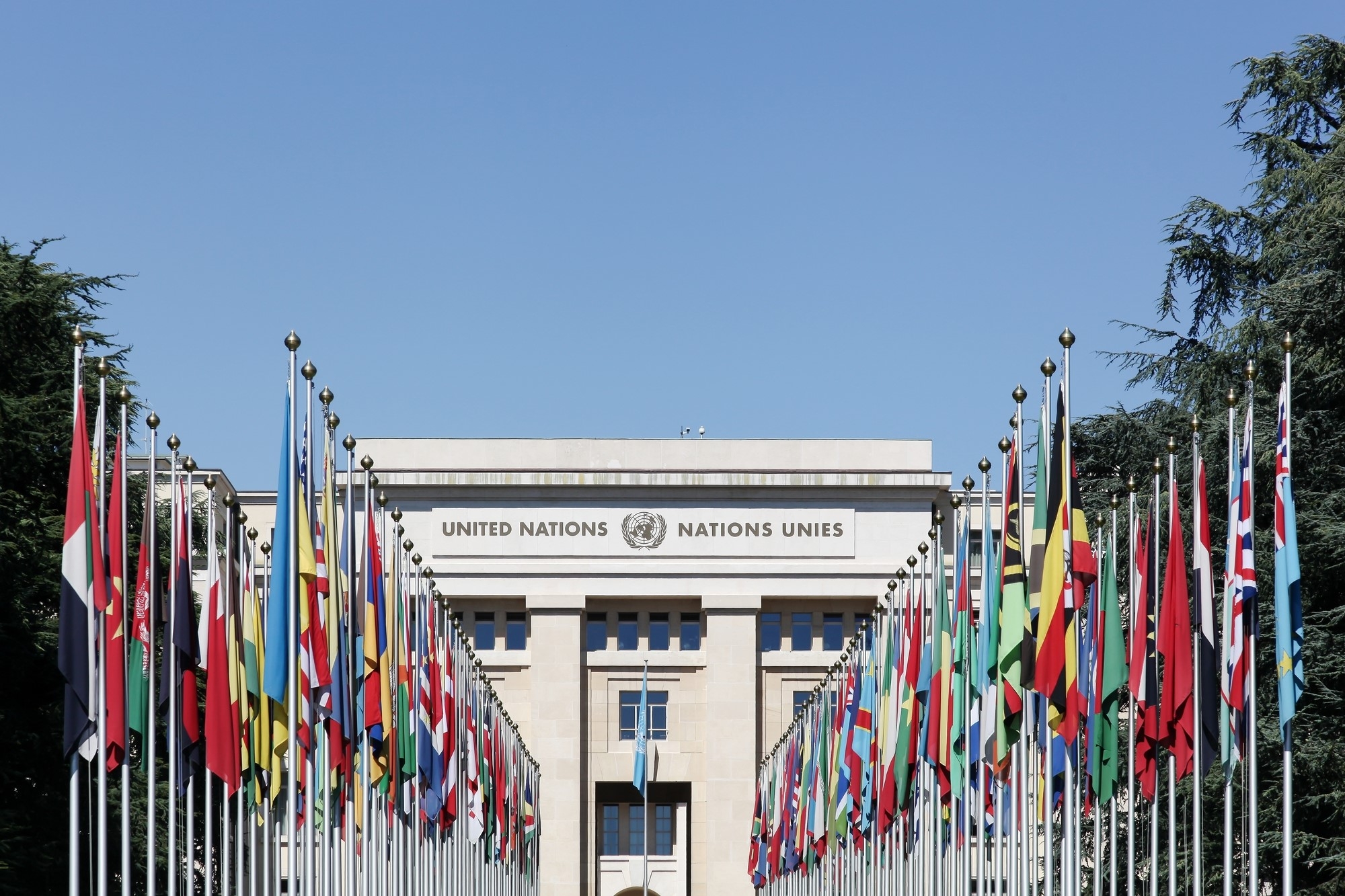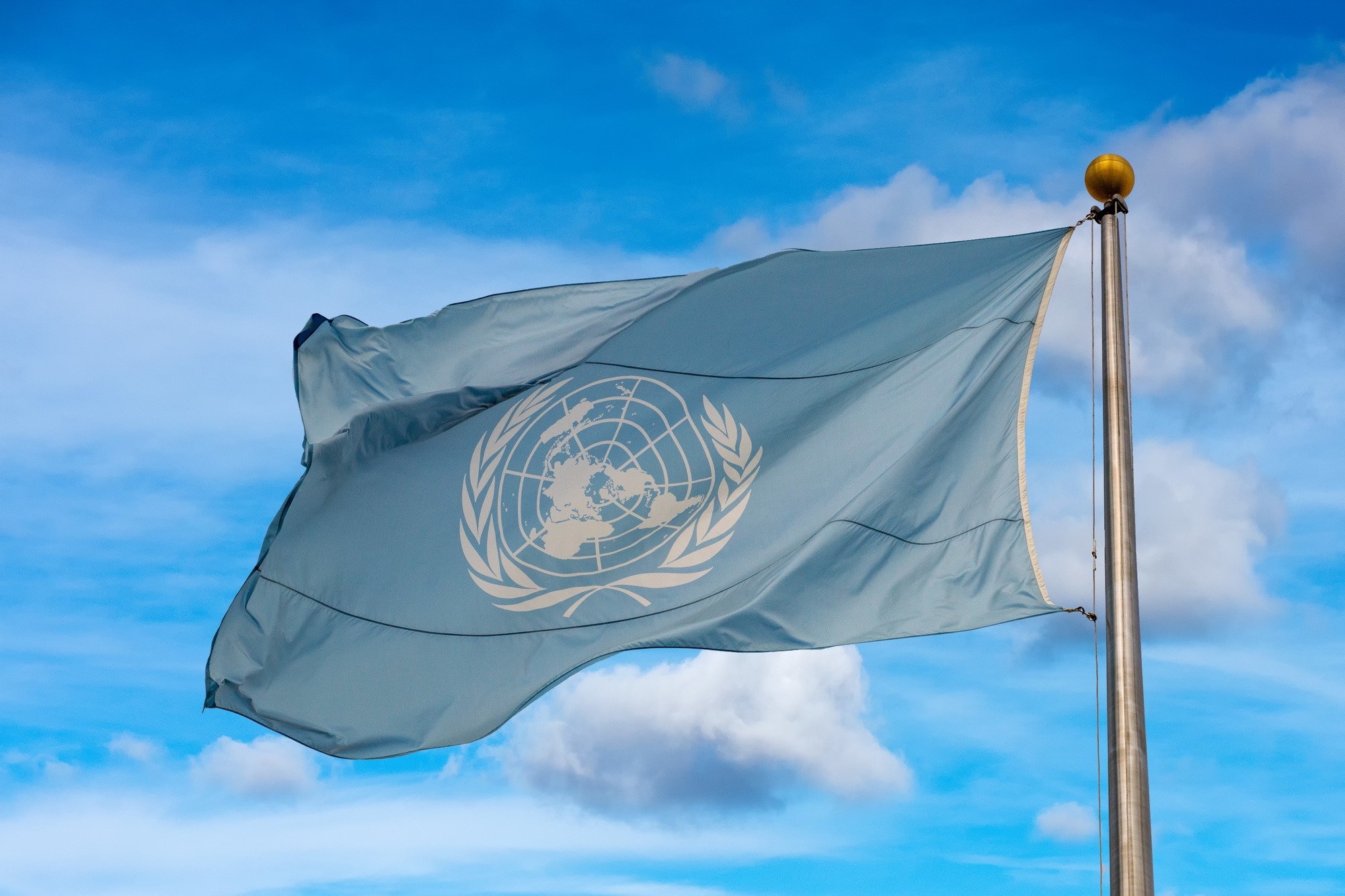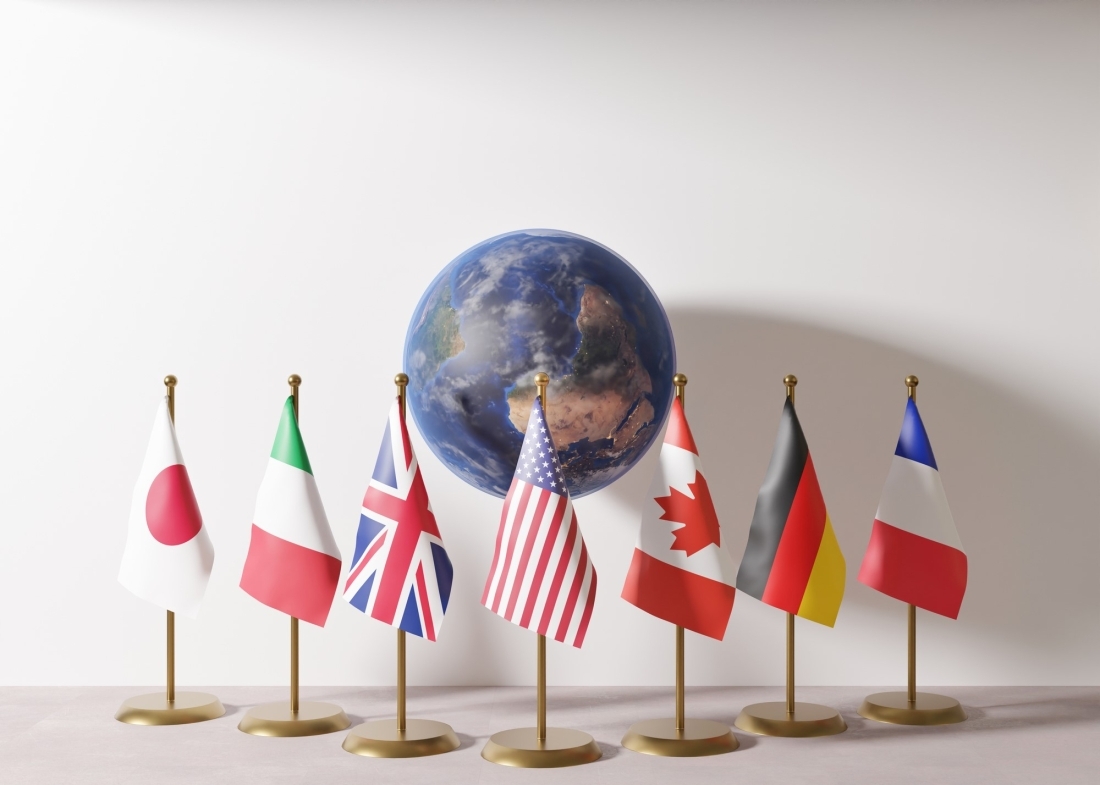DISCUSSION
UN Reform
March 15, 2023
Diplomats at the United Nations in New York will talk a lot about reforms to the organization in 2023. In the wake of the COVID-19 and Russia’s assault on Ukraine, most UN members agree that the world body needs to be updated to face shifting global challenges.
For many members – not least Japan – one essential part of UN reform has to be a push to reshape the Security Council. The Council still reflects the power dynamics of 1945, when the UN was founded. Russia, which holds a veto on the Council as one of the five main victors of the Second World War, has used this blocking power to halt criticism of its actions in Ukraine.
At the September 2022 high-level session of the UN General Assembly, U.S. President Joe Biden argued that Russia’s actions demonstrated the need to overhaul the Council. He cited not only the duty of the body’s permanent members to “refrain” from using their vetoes unnecessarily, but also the need to revise the fifteen-members’ Council size and structure.
This was good news for Japan, which has long campaigned to secure a permanent seat of its won on the Council. Since 2005, Tokyo has worked with three other aspirants for permanent positions on the Council – Brazil, Germany and India – to win these seats. The U.S. has declared its support for Germany, Japan and India’s ambitions at various times since the end of the Cold War, although it has never been explicit about Brazil in this context. Nonetheless, most U.S. administrations have treated Council reform as an afterthought or distraction. The current set-up in New York generally favors U.S. interests, and the procedural and political obstacles to reform (which two-thirds of UN members would have to ratify) are rather high.
For many members – not least Japan – one essential part of UN reform has to be a push to reshape the Security Council. The Council still reflects the power dynamics of 1945, when the UN was founded. Russia, which holds a veto on the Council as one of the five main victors of the Second World War, has used this blocking power to halt criticism of its actions in Ukraine.
At the September 2022 high-level session of the UN General Assembly, U.S. President Joe Biden argued that Russia’s actions demonstrated the need to overhaul the Council. He cited not only the duty of the body’s permanent members to “refrain” from using their vetoes unnecessarily, but also the need to revise the fifteen-members’ Council size and structure.
This was good news for Japan, which has long campaigned to secure a permanent seat of its won on the Council. Since 2005, Tokyo has worked with three other aspirants for permanent positions on the Council – Brazil, Germany and India – to win these seats. The U.S. has declared its support for Germany, Japan and India’s ambitions at various times since the end of the Cold War, although it has never been explicit about Brazil in this context. Nonetheless, most U.S. administrations have treated Council reform as an afterthought or distraction. The current set-up in New York generally favors U.S. interests, and the procedural and political obstacles to reform (which two-thirds of UN members would have to ratify) are rather high.

Biden’s public display of interest in Council reform last year was, therefore, a significant moment for Japan and its friends at the UN. Nonetheless, diplomats in New York remain divided over whether Biden spoke in earnest, or whether he simply floated the need for reform to win some goodwill at the General Assembly. If the U.S. President had not acknowledged the flaws of the Security Council in the context of the Russian-Ukrainian war, it would have looked like Washington was deaf to global disquiet over the state of the UN.
Cynical diplomatic observers wonder if Biden raised the issue in part to embarrass China and Russia, which are both known to harbor deep doubts about Council reform. Chinese officials in particular are happy that they control the only Asian permanent seat on the Council. If Japan and India were to achieve the same status, it would make Beijing’s diplomacy at the UN considerably harder. Russian foreign minister Sergei Lavrov also tried to sow dissent among the aspirants to permanent seats in September, declaring that Moscow backs Brazil and India’s ambitions – but not Germany and Japan’s. His reasoning was clear: Brasilia and New Delhi are generally seen as more sympathetic to Moscow at the UN than Berlin or Tokyo.
Under the UN Charter, any one of the current permanent members of the UN Security Council can block Council reform even if every other UN member ratifies it. China and Russia’s obstructionism could stop Council reform, even if the U.S. puts real energy into the project.
Washington’s intentions in this regard remain opaque to most other UN members. U.S. Ambassador to the UN Linda Thomas-Greenfield has been quietly consulting with other members since September about their positions on the issue. Other U.S. officials have said that they would like to find a “consensus” on the topic, which is patently unrealistic. But in private American diplomats recognize that it would be bad for President Biden to return to the General Assembly for the September 2023 high-level session with no progress to report on this signature issue. It makes sense for Japan and its partners to make the best case they can for Council reform in the coming months – but their opponents will also make their case.
Tokyo must handle this challenge delicately. It would be counterproductive to frame its quest for a permanent seat as a zero-sum contest with China or Russia. This is especially true because Japan is just beginning a two-year term as an elected member of the Security Council, and will have to conduct difficult negotiations with all the permanent members. It would be self-defeating for Japanese officials to undermine their efforts in the Council by trumpeting reform ambitions too directly, stirring up extra tensions with Beijing and Moscow. Most UN members want to see the Council keep functioning during the current geopolitical crisis, and hope that Japan and the other elected members will keep the body more-or-less on the rails.
After a year of ugly and exhausting UN debates over Ukraine, many governments are keen to avoid being dragged into more big-power games in New York. Japan needs to show that it is sensitive to others’ concerns about the future of the Security Council and the UN as a whole.
This means in part recognizing and respecting African states’ views. Conflicts in Africa occupy about two-thirds of the Council’s time, but the continent has no permanent member on the Council. In recent years, the three elected African members of the body (currently Gabon, Ghana and Mozambique) have worked closely to represent the views of their region and the African Union (AU). But the African Group at the UN insists that its members should hold at least two permanent seats in the Council. Confusingly, nobody is sure exactly who should take those seats. But Japanese diplomats need to lobby their African counterparts smartly to shape a common approach to achieving Council reform. This is not only a matter of defining who sits in which seats in New York, but also addressing other African priorities, such as agreeing a new deal for the UN to fund AU stabilization operations in areas like the Sahel and Somalia.
Equally, it is important to keep in mind that many UN members – including African states and those from other regions – do not see UN reform solely in terms of the Security Council. Many states are much more interested in what the organization does in terms of development, especially after the economic shocks of COVID-19 and the Russian-Ukrainian war. For a sizeable percentage of UN members, the most important issue in 2023 is making a success of a summit slated for September on achieving the Sustainable Development Goals (SDGs), the organizations’s ambitious package of plans to slash poverty and end other global ills by 2030.
It is no secret in New York that, given recent economic headwinds, the world is far off-track to achieving the SDGs. It makes little sense for Japan and its partners to prioritise. Security Council reform at the UN in isolation from these development concerns, even in the context of Ukraine. Tokyo should see that the road to Security Council reform is not linear, and instead will involve a wider effort to build support across the UN by talking about the future of aid, trade and maintaining a fair global system in a period of mounting international frictions.
Cynical diplomatic observers wonder if Biden raised the issue in part to embarrass China and Russia, which are both known to harbor deep doubts about Council reform. Chinese officials in particular are happy that they control the only Asian permanent seat on the Council. If Japan and India were to achieve the same status, it would make Beijing’s diplomacy at the UN considerably harder. Russian foreign minister Sergei Lavrov also tried to sow dissent among the aspirants to permanent seats in September, declaring that Moscow backs Brazil and India’s ambitions – but not Germany and Japan’s. His reasoning was clear: Brasilia and New Delhi are generally seen as more sympathetic to Moscow at the UN than Berlin or Tokyo.
Under the UN Charter, any one of the current permanent members of the UN Security Council can block Council reform even if every other UN member ratifies it. China and Russia’s obstructionism could stop Council reform, even if the U.S. puts real energy into the project.
Washington’s intentions in this regard remain opaque to most other UN members. U.S. Ambassador to the UN Linda Thomas-Greenfield has been quietly consulting with other members since September about their positions on the issue. Other U.S. officials have said that they would like to find a “consensus” on the topic, which is patently unrealistic. But in private American diplomats recognize that it would be bad for President Biden to return to the General Assembly for the September 2023 high-level session with no progress to report on this signature issue. It makes sense for Japan and its partners to make the best case they can for Council reform in the coming months – but their opponents will also make their case.
Tokyo must handle this challenge delicately. It would be counterproductive to frame its quest for a permanent seat as a zero-sum contest with China or Russia. This is especially true because Japan is just beginning a two-year term as an elected member of the Security Council, and will have to conduct difficult negotiations with all the permanent members. It would be self-defeating for Japanese officials to undermine their efforts in the Council by trumpeting reform ambitions too directly, stirring up extra tensions with Beijing and Moscow. Most UN members want to see the Council keep functioning during the current geopolitical crisis, and hope that Japan and the other elected members will keep the body more-or-less on the rails.
After a year of ugly and exhausting UN debates over Ukraine, many governments are keen to avoid being dragged into more big-power games in New York. Japan needs to show that it is sensitive to others’ concerns about the future of the Security Council and the UN as a whole.
This means in part recognizing and respecting African states’ views. Conflicts in Africa occupy about two-thirds of the Council’s time, but the continent has no permanent member on the Council. In recent years, the three elected African members of the body (currently Gabon, Ghana and Mozambique) have worked closely to represent the views of their region and the African Union (AU). But the African Group at the UN insists that its members should hold at least two permanent seats in the Council. Confusingly, nobody is sure exactly who should take those seats. But Japanese diplomats need to lobby their African counterparts smartly to shape a common approach to achieving Council reform. This is not only a matter of defining who sits in which seats in New York, but also addressing other African priorities, such as agreeing a new deal for the UN to fund AU stabilization operations in areas like the Sahel and Somalia.
Equally, it is important to keep in mind that many UN members – including African states and those from other regions – do not see UN reform solely in terms of the Security Council. Many states are much more interested in what the organization does in terms of development, especially after the economic shocks of COVID-19 and the Russian-Ukrainian war. For a sizeable percentage of UN members, the most important issue in 2023 is making a success of a summit slated for September on achieving the Sustainable Development Goals (SDGs), the organizations’s ambitious package of plans to slash poverty and end other global ills by 2030.
It is no secret in New York that, given recent economic headwinds, the world is far off-track to achieving the SDGs. It makes little sense for Japan and its partners to prioritise. Security Council reform at the UN in isolation from these development concerns, even in the context of Ukraine. Tokyo should see that the road to Security Council reform is not linear, and instead will involve a wider effort to build support across the UN by talking about the future of aid, trade and maintaining a fair global system in a period of mounting international frictions.


